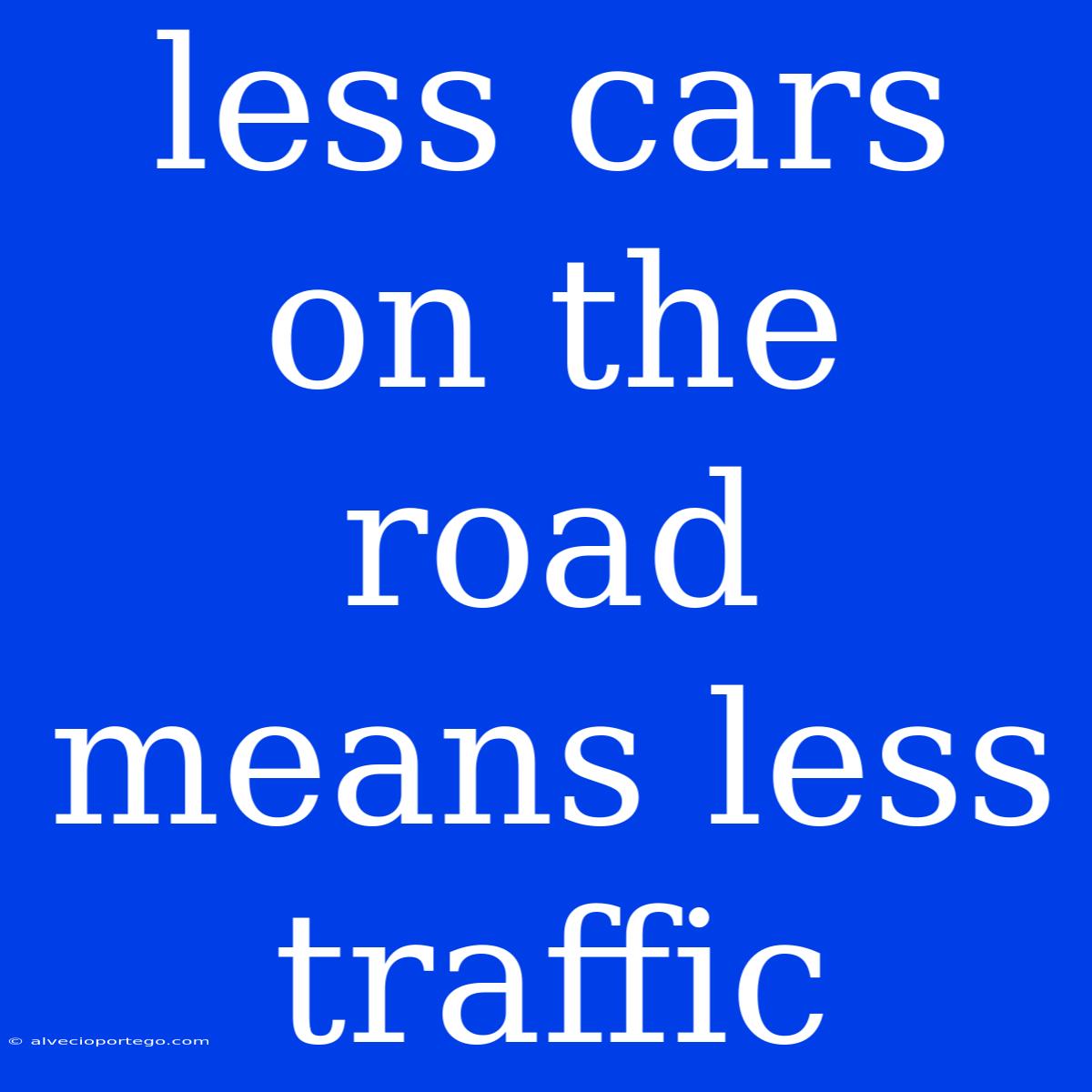Breathe Easy: Fewer Cars, Less Traffic
We've all been there. Stuck in bumper-to-bumper traffic, the minutes ticking by, frustration mounting. It's a common experience in our car-centric world. But what if there was a way to reduce this daily grind? The answer might be simpler than you think: fewer cars on the road.
The Problem With Too Many Cars
Our cities were built for a different era. Roads were designed for a smaller number of vehicles, and the current influx of cars often overwhelms their capacity. This leads to:
- Increased Congestion: Traffic jams become a daily reality, wasting time, fuel, and increasing stress.
- Longer Commute Times: The journey to work or school becomes longer and more unpredictable, impacting productivity and quality of life.
- Environmental Impact: More cars mean more emissions, contributing to air pollution and climate change.
- Safety Concerns: Dense traffic increases the risk of accidents and delays emergency response times.
The Solution: Reducing Car Dependency
The good news is, we can change the situation. By reducing our reliance on private vehicles, we can create a more sustainable and enjoyable urban environment. Here are some key strategies:
1. Embrace Public Transportation: Invest in robust and efficient public transport systems, including buses, trains, and light rail. Make it a convenient and attractive alternative to driving.
2. Promote Cycling and Walking: Create safe and dedicated infrastructure for cyclists and pedestrians, making it easier and safer to choose active transportation.
3. Encourage Carpooling and Ridesharing: Promote carpooling initiatives and make ride-sharing services accessible and affordable.
4. Implement Congestion Pricing: Charge a fee for driving in congested areas, encouraging people to consider alternative modes of transport.
5. Promote Remote Work and Flexible Hours: Allowing employees to work remotely or adjust their schedules can reduce rush hour traffic significantly.
The Benefits of Less Traffic
Reducing car dependency doesn't just benefit our roads, it has a ripple effect on our lives and the environment:
- Reduced Stress and Increased Productivity: Shorter commute times and less time stuck in traffic lead to lower stress levels and improved productivity.
- Improved Air Quality: Fewer cars mean less pollution, contributing to a healthier environment and improving public health.
- Safer Streets: Pedestrians and cyclists are less vulnerable in areas with less traffic, leading to a safer and more enjoyable urban experience.
- More Vibrant Cities: Less traffic encourages the creation of pedestrian-friendly spaces, fostering a more vibrant and livable urban environment.
The future of transportation is not just about more cars, it's about finding smarter and more sustainable solutions. By reducing our car dependency, we can unlock a future with less traffic, cleaner air, and happier cities.

